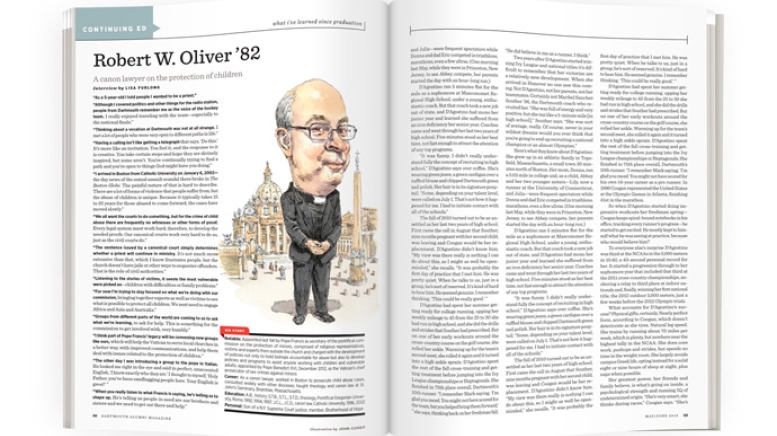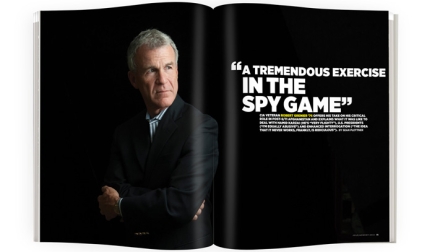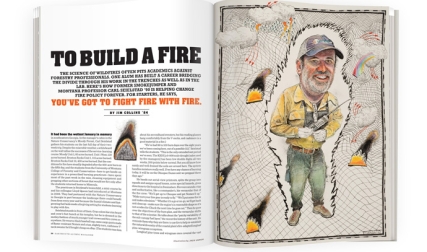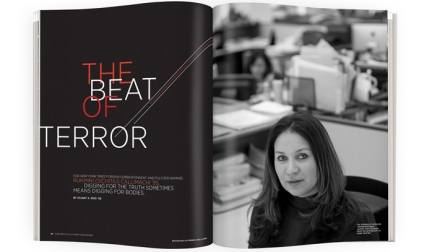Notable: Appointed last fall by Pope Francis as secretary of the pontifical commission on the protection of minors, comprised of religious representatives, victims and experts from outside the church and charged with the development of policies not only to hold bishops accountable for abuse but also to develop policies and programs to assist anyone working with children and vulnerable adults; appointed by Pope Benedict XVI, December 2012, as the Vatican’s chief prosecutor of sex crimes against minors
Career: As a canon lawyer, worked in Boston to prosecute child abuse cases, consulted widely with other dioceses; taught theology and canon law at St. John’s Seminary, Braintree, Massachusetts
Education: A.B., history; S.T.B., S.T.L., S.T.D., theology, Pontifical Gregorian University, Rome, 1992, 1994, 1997; J.C.L., J.C.D., canon law, Catholic University, 1996, 2002
Personal: Son of a N.Y. Supreme Court justice; member, Brotherhood of Hope
“As a 5-year-old I told people I wanted to be a priest.”
“Although I covered politics and other things for the radio station, people from Dartmouth remember me as the voice of the hockey team. I really enjoyed traveling with the team—especially to the national finals.”
“Thinking about a vocation at Dartmouth was not at all strange. I met a lot of people who were very open to different paths in life.”
“Having a calling isn’t like getting a telegraph that says, ‘Do this.’ It’s more like an invitation. You feel it, and the response to it is creative. You take certain steps and hope they are divinely inspired, but some aren’t. You’re continually trying to find a path and you’re open to things God might have you doing.”
“I arrived in Boston from Catholic University on January 6, 2002—the day news of the sexual assault scandal there broke in The Boston Globe. The painful nature of that is hard to describe. There are a lot of forms of violence that people suffer from, but the abuse of children is unique. Because it typically takes 15 to 25 years for those abused to come forward, the cases have moved slowly.”
“We all want the courts to do something, but for the crime of child abuse there are frequently no witnesses or other forms of proof. Every legal system must work hard, therefore, to develop the needed proofs. Our canonical courts work very hard to do so, just as the civil courts do.”
“The sentence issued by a canonical court simply determines whether a priest will continue in ministry. It’s not much more extensive than that, which I know frustrates people, but the church doesn’t have jails or other ways to sequester offenders. That is the role of civil authorities.”
“Listening to the stories of victims, it seems the most vulnerable were picked on—children with difficulties or family problems.”
“For now I’m trying to stay focused on what we’re doing with our commission, bringing together experts as well as victims to see what is possible to protect all children. We next need to engage Africa and Asia and Australia.”
“Groups from different parts of the world are coming to us to ask what we’re learning, to ask for help. This is something for the commission to get involved with, very humbly.”
“I think part of Pope Francis’ legacy will be convening new groups like ours, which will help the Vatican to serve local churches in a better way, with improved communications, and help them deal with issues related to the protection of children.”
“The other day I was introducing a group to the pope in Italian. He looked me right in the eye and said in perfect, unaccented English, ‘I know exactly who they are.’ I thought to myself, ‘Holy Father, you’ve been sandbagging people here. Your English is great!’ ”
“When you really listen to what Francis is saying, he’s telling us to shape up. He’s telling us people in need are our brothers and sisters and we need to get out there and help.”




